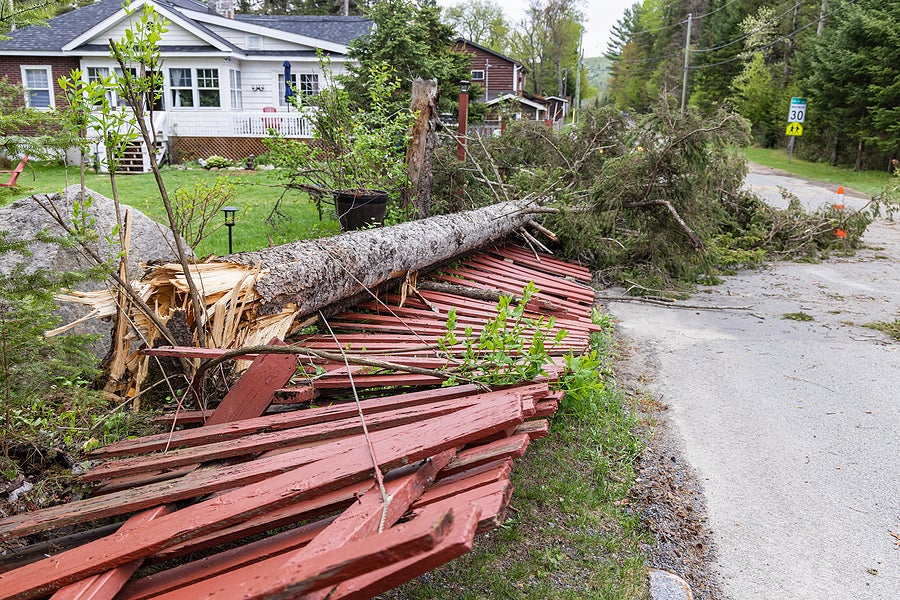It turns out that you can’t schedule natural disasters. They happen and they don’t particularly care when. Most recent case in point: Two weeks ago, tornados devastated three counties in Arkansas and six counties in Mississippi, resulting in approval of federal disaster assistance by President Biden and, in the case of Mississippi, a Public Health Emergency declaration by the Secretary of HHS. It’s never a good time for tornados—or hurricanes or floods or wildfires or severe winter storms—but for these state Medicaid agencies and beneficiaries, the tornados come at particularly inopportune time: just as the unwinding of the Medicaid continuous enrollment requirement begins.
The unwinding will play out in all states over the next 14 months. Although the timing in each state will vary, it is plausible, if not likely, that other natural disasters will strike as the eligibility redeterminations proceed. Regardless of the type of natural disaster, preserving Medicaid coverage in the affected states or counties will be essential to maintaining beneficiary access to services, protecting beneficiaries and their families from medical bills, and sustaining the flow of revenues to providers serving the affected areas so they can stay afloat. So how can state Medicaid programs manage through natural disasters in the midst of the unwinding?
As Medicaid is now structured, the federal government has states’ backs. If state Medicaid spending increases as the result of a natural disaster, either because the use of medical care increases or because economic dislocation leads to growth in enrollment (or both), federal funds automatically increase to match the increased state spending. States are at risk only for their share of any additional Medicaid costs driven by a natural disaster; they don’t need to make any special request for extra federal funds to address the disaster.
While ongoing federal matching is guaranteed, states may not be able to continue program operations as usual. In this case, they can request approval from CMS to make short-term modifications in eligibility, benefits, and/or provider payments to address the unique circumstances on the ground. The main tools in CMS’s “Disaster Relief Toolkit” for states are sections 1115 and 1135 of the Social Security Act, which authorize CMS to grant waivers to enable states to make needed program changes.
As MACPAC has explained, the use of these authorities to help states goes back to at least the 9/11 terrorist attacks on New York City. For example, section 1115 waivers helped Louisiana and other affected states respond to Hurricane Katrina in 2005 and helped Iowa recover from severe flooding in 2008. Section 1135 waivers have been used to help Florida and other southeastern states navigate the fall-out on providers as well as beneficiaries from Hurricanes Florence and Michael, among others. (Section 1135 has also been integral to Medicaid’s response to the COVID-19 pandemic and other public health emergencies).
While these authorities are available to assist states hammered by natural disasters, states may not need them to solve the unique administrative challenges that natural disasters pose for the unwinding. In the case of Arkansas and Mississippi, where the tornados wreaked havoc in certain counties, the state Medicaid agencies could simply revise their comprehensive plans and/or renewal reports to suspend redeterminations for beneficiaries living in the affected areas until those areas have recovered. Even if the state agency is able to locate them, beneficiaries whose houses and personal records have been destroyed will in all likelihood not be able to provide the information needed to renew their eligibility. Terminating their Medicaid coverage for non-response in these circumstances and increasing the number of uninsured in the disaster area would make no sense for the beneficiary, the affected community, or the state.
It is tempting to take Medicaid’s financing protections and waiver flexibilities for granted. Don’t. As my colleague Edwin Park warns, members of the House majority have announced a proposal to convert Medicaid into five separate block grants, each with annual caps on federal matching funds with no adjustment for the costs of natural disasters. Adoption of this proposal would be a disaster—unnatural, to be sure—but a disaster nonetheless.


